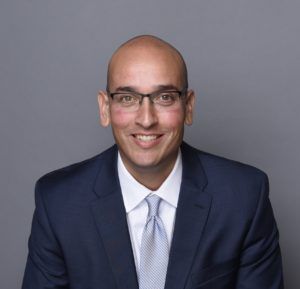In my new book, “Stronger Than Stigma. A Call to Action: Stories of Grief, Loss, and Inspiration,” I share the connection several leaders in Tampa Bay have to mental illness, grief, loss and addiction. Writing this book, and knowing the amazing people featured in it, has been one of the most impactful experiences of my life. These shared stories are some of the most authentic and real representations of what is going on in our country concerning mental illness, addiction and recovery.
The book is a collection of stories composed from interviews and discussions. These stories share how each person processed their grief, and loss, as well as how they diligently, and carefully, manage their addiction, mental illness and self-care.
The real takeaway from this book is in the personal call to action each of these individuals developed as part of their recovery and mental health management process. The people featured are actively involved in supporting mental health and addiction awareness, passionate about sharing their stories to inspire others and support efforts to improve the quality of life of those suffering.
The following are excerpts from the book shared from leaders in our community:
Ben Heldfond, owner, Heldfond Holdings: Need hadn’t motivated me to go to the meetings. Need hadn’t encouraged me to be honest. Need hadn’t made me resist the urge to use. Want, however, did. I wanted to stop living my life like that and I wanted to stop the incomprehensible demoralization I felt every single day. I’ve been sober, now, for twenty-five years. I can’t say I’ve done it perfectly, but I haven’t taken a drink or used. Those first five years of my sobriety built a solid foundation inside me, so when a storm does come along I have a better chance of surviving it. All of us are fighting like hell, every day, not to backslide. That’s recovery in a nutshell. We’re all just ordinary people who achieved something extraordinary.
Rita Lowman, president, Pilot Bank: The hardest thing to accept is that sometimes the person you love isn’t ready to get help. You can’t give up on them. Recovery is a beautiful thing but it also requires daily management and initiative. Both you and your loved ones need positive reinforcement, every day. You have to keep talking and keep the dialogue going. Together, you can get through it.
Jason Caras, CEO and co-chairman of the board, IT Authorities: Depression is a lot more than feeling down, it is a powerful emotional state that can drive us to think, and do, the unthinkable. Suffering in silence can lead to shame, severe depression or even suicide. If we are open and honest about negative feelings and emotions, we take away the power they can have over us, making it easier to reach out for help.
Being able to unapologetically share your life, and story, with the world gives you a huge sense of freedom – that’s the power of story. Because of this, stories are powerful tools and to fight, and end, stigma it takes powerful tools. Through story, this incredible group of people share their resiliency, grace and unconquerable spirit with the world.
This book is dedicated to all the courageous and inspiring people who are in recovery, managing their mental health or who have experienced profound grief and loss.
To all of the individuals, and families, who were able to navigate the tragedy of loss and turned that sadness into purpose and action, I want to tell you: Your VOICE helps change the discussion around mental health and addiction. Your EFFORTS are helping eliminate the stigma associated with mental illness and recovery and Your ACTIONS help save lives every day.
As you think about sharing your story, remember, talking about mental health today isn’t just a moment, talking about mental health is a movement. ♦

Ian Adair is a nonprofit industry influencer, TEDx speaker and recognized expert in leadership, fundraising, and nonprofit management. Ian is a sought-after speaker for nonprofit conferences around the country. He is the executive director of the Gracepoint Foundation, the philanthropic arm of Gracepoint, which impacts the lives of more than 30,000 individuals in our community each year seeking mental health and addiction services. To learn more, visit gracepointfoundation.org.
